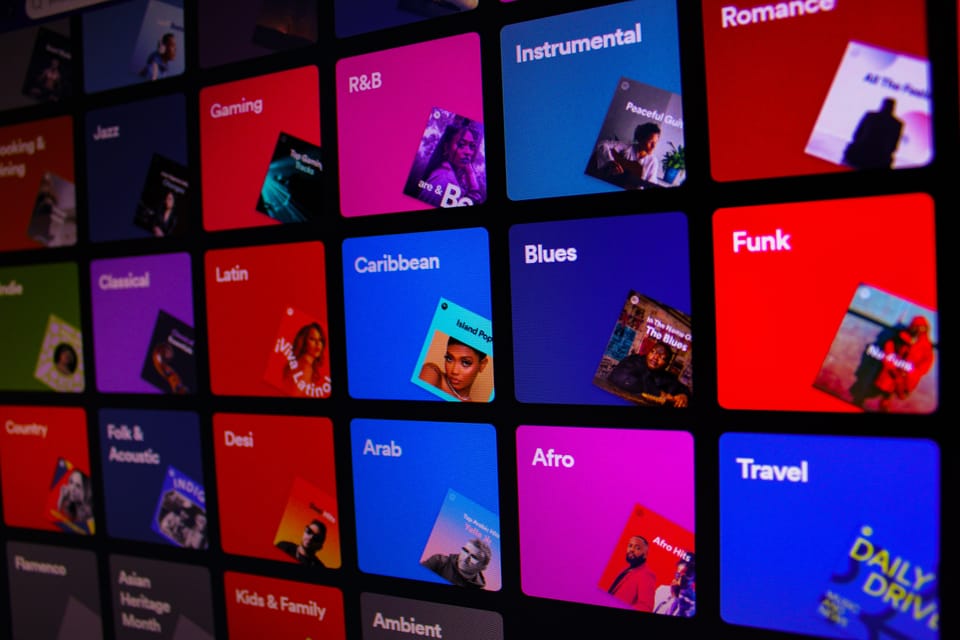Spotify and Joe Rogan

I love Spotify.
I've been a paid subscriber for many many years.
Their recommendation engine knows my tastes. Technically, the lack of latency in their audio is amazing. Spotify Connect is a truly great feature - I can be listening to a playlist on my computer in the office, transfer it to my phone to listen on my way home and then transfer it onto my home speakers. Entirely seamlessly, without losing my place in the song or the playlist.
(Photo by David Pupaza on Unsplash)
They're a European tech success story in an age of American dominance.
But there was a fundamental flaw at the heart of Spotify's business model.
For all the complaints that Spotify doesn't pay artists enough, the fact is that they can't afford to pay them any more. And that's why Joe Rogan has become a problem for them.
Because I pay Spotify about £15 per month. Every time I, or one of my family, streams a song, Spotify has to pay the record label a fee for that stream (and the record label passes on a fraction of that fee to the artist).
Spot the issue?
If I and my family leave Spotify on running 24 hours per day, then we're racking up costs. Yet Spotify cannot charge me any extra to cover those costs.
This is why, for so much of its history, Spotify has been making a loss (and very big losses at that).
This isn't an issue for Spotify's competitors.
YouTube/Google is an advertising company with huge revenues they can use to subsidise their music products.
Amazon is a retail behemoth with huge revenues that that they can use to subsidise their music products.
Apple is a hardware company with huge revenues that they can use to subsidise their music products.
The solution for Spotify was to become an "audio platform" instead of a "music platform".
And that's why podcasts are plastered all over my Spotify home page, why search results include podcasts and why they spent hundreds of millions of dollars on not just Joe Rogan and other big name hosts, but also buying up podcast studios, podcasting apps and all manner of podcasting technology.
However, this "audio platform" is a fundamentally different business model to their "music platform". Because people rarely pay subscription fees for podcasts, instead the shows are funded by advertising.
Spotify has become an advertising company. Like Google. Like Facebook.
They have long boasted that they can tell what someone's mood is from what they are listening to. They are now using that knowledge to target adverts to Spotify users. They collect all sorts of data about you and use that to bring in the maximum revenue for their advertising clients.
But for this to work, they have to embrace the controversy. Just as Youtube has. Just as Facebook has.
Because controversy brings eyeballs, brings interaction, brings engagement. And engagement brings advertisers, who in turn bring money.
The reason so many are uneasy about Joe Rogan on Spotify is because he is the emblem of the fundamental change in what Spotify actually is; from subscription platform to ad business.




